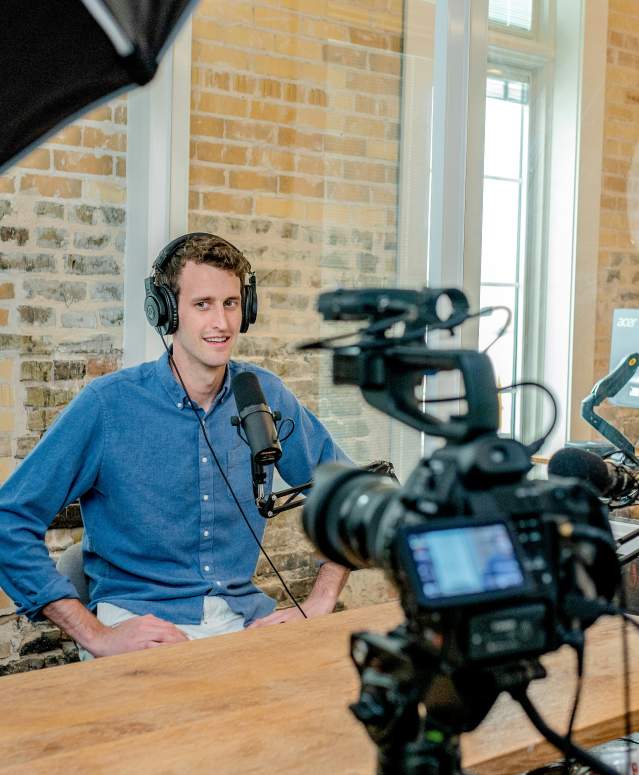Media
Media outreach plays a vital role in amplifying your event’s visibility and credibility.
By leveraging both traditional and digital media, you can reach a wider audience, including those who may not be actively seeking event information but would be interested if they came across it.
Tips:
Traditional vs digital media
- Traditional media are all forms of communication used before the internet age.
- Television advertisements.
- Radio advertising.
- Print advertising – newspapers, magazines etc.
- Direct mail advertising.
- Billboards.
- Flyers and brochures.
- Digital media is any type of media that relies on electronic or digital technology to reach an audience.
- Video and audio media (e.g. YouTube, TikTok and podcasts).
- Social media (e.g. Facebook and Instagram).
- Websites.
- Email.
- Mobile apps.
- Online advertising.
Earned, owned and paid media
- Earned – free or organic media earned through media releases, pitches to media or word of mouth such as ‘viral’ trends, mentions, shares, reviews, or recommendations.
- Owned – digital assets and channels you control and manage such as websites, and social media accounts.
- Paid – promotional channels you pay to use, including advertising placed in traditional and digital media.
Paid media campaigns
Investing in paid media can amplify your event’s reach, especially if you want guaranteed visibility in larger or competitive publications.
- Many media outlets offer sponsored article options, allowing you to present your event in a detailed, editorial format.
- Paid advertising on social media platforms like Facebook, Instagram, and LinkedIn can drive traffic to your event page, targeting audiences based on location, interests, and demographics. Learn more in the Paid Advertising section.
Crafting your story
A compelling story is essential for generating media interest and ‘earned media’ pickup. Journalists look for unique angles and perspectives, such as notable speakers, exclusive activities, or the event’s relevance to current trends or local interests.
- Media releases: a well-crafted media release is your formal announcement to media outlets, explaining the what, why, when, where, who, and how of your event. Aim to keep it concise (1-2 pages), engaging, and rich with essential information. The structure should include:
- A catchy and informative headline that encapsulates your event.
- A lead paragraph summarising key details – date, location, theme, and unique features.
- A body providing more details on event highlights, noteworthy participants, and any special offerings. Include quotes from event organisers or key speakers to add credibility.
- Conclude with a call-to-action inviting readers to learn more or buy tickets.
- Media kits: a media kit is a comprehensive resource for journalists, bloggers or influencers who want in-depth information on your event. The kit should include:
- A media release as the primary announcement.
- An event summary with an overview of the event’s purpose, theme and main features.
- Brief biographies of notable speakers, performers or organisers.
- High-resolution images of past events, promotional banners, logos and visuals that can be used in publications.
- A media contact who can answer questions and offer additional resources as needed.
Media outlets
Choosing the right media outlets is crucial to reaching your target audience effectively. Identify which publications, websites, and influencers have an audience that aligns with your event’s theme or purpose.
- Local newspapers and magazines: local media outlets are often eager to cover community events, especially if they have a public interest angle. Reach out to regional publications with a community focus, as they often attract an audience interested in attending local events.
- Radio and TV stations: radio and television are excellent for reaching broad and diverse audiences. Many stations have morning shows, community segments, or event calendars that welcome announcements and interviews.
- Radio talk shows: many local stations host talk shows or news segments that highlight upcoming events and interview organisers.
- Television news: reach out to news stations that feature community events in morning shows, weekend broadcasts or city-focused segments.
- Event calendars on news websites: many news websites, particularly local ones, have event calendars where you can list events to increase visibility and improve search engine optimisation (SEO).
- Digital publications and blogs: access your target audience using blogs and online magazines that relate to your event’s theme.
Media engagement during the event
Engaging media outlets during your event helps maintain momentum and fosters post-event coverage.
- Designate a media check-in area to greet journalists, bloggers and influencers as they arrive. Provide them with a personalised lanyard, event schedule and access to event highlights.
- Set up photo opportunities with visually appealing areas or experiences designed to attract media attention, such as art installations, interactive displays or branded backdrops.
- Offer real-time interviews with speakers, performers, or organisers and provide live updates on the event’s success.
Post-event media
Continue leveraging media connections for post-event coverage after your event is over. This helps extend the reach and legacy of your event.
- Send a thank-you email to journalists, influencers, and media representatives who covered your event including event highlights, photos and any exciting outcomes.
- Share the event’s success in a post-event media release, highlighting key achievements, audience turnout and feedback.
- Encourage attendees to share their experiences, using the event hashtag or tagging the event’s social media.
Media Contact List
|
Company |
|
|
Cave FM |
|
|
Crux Media (Queenstown/Wanaka |
|
|
Hokonui Radio |
|
|
Māori TV |
|
|
MediaWorks |
|
|
More FM |
|
|
Newstalk ZB |
|
|
NZ Herald |
|
|
NZ Herald Online |
|
|
Fiordland Advocate |
|
|
NZME |
|
|
Prime News |
|
|
Radio Southland |
|
|
RNZ |
|
|
Southland Express |
|
|
Southland Express / ODT |
|
|
Southland Times / Stuff |
|
|
Southland Tribune |
|
|
Stuff |
|
|
The Ensign |
|
|
The Project |
|
|
The Southland App |
|
|
ThreeNews |
|
|
Tourism Ticker |
|
|
TVNZ 1 News |
|
|
What's On Invers |
|
|
Otago News |
|
|
Scoop |
Useful Links:
- Meta Business Suite | Facebook and Instagram advertising
Have you considered?
- Which media channels and outlets are most appropriate for connecting with your target audience?
- What will you include in your media kit?
- How will you engage with media at your event and afterward?

